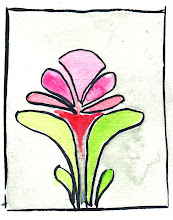Recent readings in History have caused me to wonder more about the point of view of the historians, semioticians, linguists, etc than of the times I'd been interested in. The remains of Sappho's body of work and how it had been interpreted by the whole Gertrude Stein crew at the turn of the 20th century kind of brought it into sharp focus, as these translations are viewed somewhat as "bible."
Still, these bits are really tempting, just like the crusts of a sandwich offered to a pigeon or duck in a park:
To Aphrodite (Fr. 1. G) 1
Aphrodite on your intricate throne, immortal, daughter of Zeus, weaver of plots, I beg you, do not tame me with pain or my heart with anguish
but come here, as once before when I asked you, you heard my words from afar and listened, and left your father's golden house and came
you yoked your chariot, and lovely swift sparrows brought you, fast whirling over the dark earth from heaven through the midst of the bright air
and soon they arrived. And you, o blessed goddess, smiled with your immortal face and asked what was wrong with me, and why did I call now,
and what did I most want in my maddened heart to have for myself. "Whom now am I to persuade to your love, who, Sappho, has done you wrong? For if she flees, soon she'll pursue you, and if she won't take gifts, soon she'll give them, and if she won't love, soon she will love you, even if she doesn't want to.
When I Look at You (Fr. 31. G) 2
The man seems to me strong as a god, the man who sits across from you and listens to your sweet talk nearby
and your lovely laughter - which, when I hear it, strikes fear in the heart of my breast. For whenever I glance at you, it seems that I can say nothing at all
but my tongue is broken in silence, and that instant a light fire rushes beneath my skin, I can no longer see anything in my eyes and my ears are thundering,
and cold sweat pours down me, and shuddering grasps me all over, and I am greener than grass, and I seem to myself to be little short of death
But it is endurable, since even a poor man...
Anactoria (Fr. 16. G) 3
Some would say an army of cavalry, others of infantry, others of ships, is the fairest thing on the dark earth, but I say it's whatever you're in love with
It's completely easy to make this clear to everyone, for Helen, who far surpassed other people in beauty, left behind the most aristocratic
of husbands and went to Troy. She sailed away, and did not remember at all her daughter or her beloved parents, but [Aphrodite] took her aside
(...) which makes me remember Anactoria who is no longer near,
her lovely step and the brilliant glancing of her face I would rather see than the Lydians' chariots or their infantry fighting in all their armo(u)r.
Just tesserae, fragments of what we have left of her poetry. Makes me think of a young one feeling love for the first time. Beautiful, Fresh, Spring-like. A Romantic Ideal, but perhaps not so sustainable in Real Life. How much of it is hers, and how much of it is wishful thinking on the part of the interpreters?
***
1. Sources of The Making of the West, V. 1; Katherine J. Lualdi. Bedford/St. Martins, Boston. Pp. 15-19.
2. Ibid.
3. Ibid.
